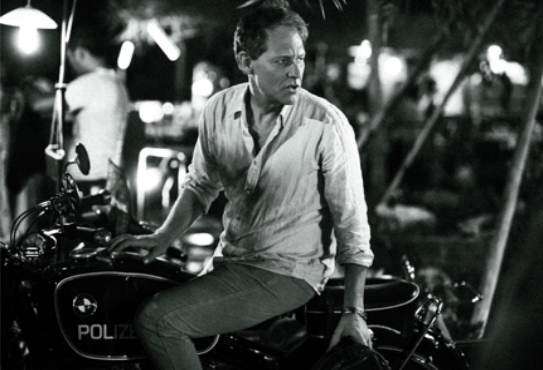The Rule of Law is for All
From ILI’s Executive Director, Mark Walter
I grew up in the shadows of the last generation of Pittsburgh steelworkers, mostly hard-scrabble children of immigrants from across Europe and the great grandchildren of former slaves. The stories told to me were of labor strikes and hard-won prosperity and the built-in faith in the transparency and fairness of the law. The prosperity Pittsburgh once had eventually faded, and while years of adversity have finally given way to a new sort of success for the city, the indelible marks of the hopeful immigrant and minority communities who helped drive American economic rule of law remain. I left Pittsburgh long ago but still find shades and hues of my city and its people wherever I go.
Constitutions, legislation and government policies are typically held out as the tools of the rule of law, and they suggest the parallel importance of government and civil society as the keepers of the rule of law. A fair and transparent government, it is said, will lead to human development across a country and beyond. We sometimes forget that this big concept of the rule of law lives in each of us at our own individual place and level in the world. I have a unique appreciation for the impact of the rule of law made by real people and the practical impact it has on those people.
Fairness Is Foundational


Transparency Is Fundamental
There could be a legitimate public policy reason for the seemingly arbitrary rule. Or it could be an example of rent-seeking. It’s hard to know because of a lack of transparency. This is an instance where the rule of law may be the difference between eating or going hungry for families. The rule of law matters.
Stories like this repeat themselves hundreds of thousands of times around the world every day. A coffee farmer who wants to market her own brand but cannot trust intellectual property protection. An information technology company wanting to expand but cannot navigate internecine business registration rules. Anticompetitive agricultural traders fixing territories to take advantage of growers. Entrepreneurial app developers who can’t get funding because their software is not legally accepted as collateral. The near absence of access to commercial justice for small exporters. These are all rule of law issues that are rarely resolved at the top levels of policy making. Only by working both upward from the businesses themselves and downward from the rule-makers and developing pragmatic solutions that work in the circumstances which an economy has been dealt, can we achieve the kind of structure that people hope for and which can help them truly thrive.
A Framework For Fair Solutions
Law has held an awkward place in international development. The rule of law is qualitative and can seem unscientific. Unlike economics-driven solutions, legal solutions can be hard to quantify. Some rule of law solutions work well as multi-lateral treaties. Some are successful in a regionally harmonized form. Others can be effectively adopted from foreign jurisdictions. And still others must be hand-crafted in the places where they’re needed, using tools and methods derived from the literally thousands of years that people have been applying the rule of law to their commercial lives.
All of these approaches need to be used. We need to come back to the notion that has evolved over time, of a lex mercatoria – the law merchant. The notion that the rules come from the people who use them the most, making their lives less risky and more efficient. We also need an international legal community that fully recognizes its role in international development. As a mentor of mine likes to say “you can’t have the rule of law without lawyers.”
This is where The International Law Institute comes in. I am new to the organization and have tremendous respect for ILI’s nearly 70 years of tireless perseverance in making the rule of law work for real people around the world. I am honored to be a part of its future. That future will continue to be focused on people-centered law reform, sustainability and resilience, and an overarching dedication to human development.

Mark is an expert in international legal development, law and development methodologies, international commercial law, legal education, trade law and policy, and international development management. He is a member of the Board of Advisors of the Center for International Legal Education. Mark has led development projects in more than 30 countries on continents.
Mark earned B.A. from the University of Pittsburgh, an M.S. in Journalism from Virginia Commonwealth University, and a J.D. from the University of Pittsburgh.

